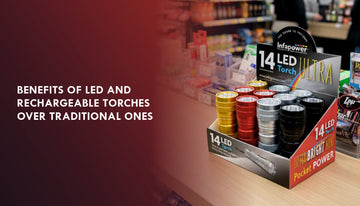Handling and storing batteries is not just a back-end process; it is the core of providing energy to homes, businesses, and technology. When managing inventory of wholesale 23A 12V batteries and dealing with safety, understanding is key. Every 23A 12V battery in your inventory is not only a source of energy, but also a responsibility to protect. Following a few simple safety measures when storing batteries will protect your employees and your investment, and also allow you to be confident your batteries are safe, usable, and reliable.
Understanding 23A 12V Battery Characteristics
Before discussing storage safety, it is helpful to understand the characteristics of the 23A 12V battery.
-
Wholesale 23A 12V battery storage may involve handling hundreds of units at a time; there is a higher risk that mistakes will be made, making the need for safety crucial.
-
It is a single-use battery made of alkaline or lithium chemistry batteries, and the batteries can degrade at slow rates, experience corrosion, and physical damage if not handled properly.
-
It is a small cylindrical battery that appears in handheld key fobs and wireless alarm systems, as well as portable and wireless devices. Though the battery is fairly small, it is high voltage, and batteries have the potential to leak chemicals, short out, and even heat up and burst when handled improperly.
Safe Handling Practices for 23A 12V Batteries
Handling batteries in wholesale quantities requires stricter precautions. Some important points are as follows:
-
When handling the 23A 12V battery, have clean, dry hands. The terminals must be clean and free of moisture or contamination because moisture or contamination will cause terminal issues and potentially leakage.
-
Never mix wholesale 23A 12V battery shipments with older shipments or any other battery chemistry. Combining batteries can lead to problems regarding performance or even chemical interactions.
-
Do not stack or drop batteries. Excessive physical exertion may crack the cell and consequently cause leakage or a fire hazard, depending on the battery chemistry.
-
If you are handling loose cells, always have a non-conductive area. This prevents them from making contact with other batteries or metallic objects that could bridge the battery terminals.
-
Only assign battery handling to trained personnel who are educated on the total safety rules of battery handling to avoid accidental misuse or improper storage.
Proper Storage Conditions for Bulk 23A 12V Batteries
The long-term safety and operation of retail batteries wholesale rely heavily on the correct storage of these batteries. The best practices include the following:
-
Store all stock of wholesale 23a 12v battery at a cool, dry place, ideally in a low-humidity, stable room temperature, to minimise self-discharge and corrosion on the terminals.
-
Use a sturdy, non-conductive (preferably plastic) container with individual compartments, and remember that using metal containers may result in a short circuit to the batteries when placed too close together.
-
A wholesale 23a 12v battery must never be exposed to direct sun or heat sources, as this will degrade batteries more quickly and create fire hazards.
-
Keep batteries away from flammable gases or liquids, and store batteries away from chemicals, oils, or solvents that could react and destroy the casing of the batteries.
-
Always try to store the batteries in their upright position to avoid the risk of any internal leakage occurring.
-
In the batteries wholesale business, remember to implement a first-in, first-out (FIFO) method of use so that the units that are older will be used up first before the newly purchased stock to maintain the efficiency level.
-
Make sure you establish a regular inspection of your batteries' wholesale collection for leakage, bubbling, and damage so you can isolate your wholesale batteries and dispose of the defective unit safely.
Environmental Responsibility and Disposal Guidelines
Handling batteries wholesale also comes with responsibilities to the environment, such as:
-
Under certain legislation, you must not put a stock of 23A 12V batteries - especially in bulk - into regular rubbish, because they are deemed hazardous waste.
-
Isolate any spoiled/discharged or damaged stock, using insulated packaging to prevent inadvertent discharge.
-
When dealing with used or old stock, you must only use licensed hazardous waste carriers or licensed battery recycling schemes.
-
Evidence of your full process needs to be recorded in writing, and all your staff should be aware of their duties, safe handling, and action plans in the event of an emergency with wholesale batteries.
Conclusion
Safe storing and handling of wholesale 23A 12V battery bulk stock is necessary to sustain business success in a competitive market. Beyond being compliant, having a good safety culture reduces risk and protects the health and well-being of the workers. This also maximises the performance and lifespan of the batteries, allowing you to get more value from each unit sold. Infapower’s innovative, quality, safe, and reliable supply solutions help achieve these aims easily and efficiently, whilst providing peace of mind alongside industry-leading products.
Visit Infapower today for quality, safety, and unbeatable value on 23A 12V batteries wholesale for your business needs.







